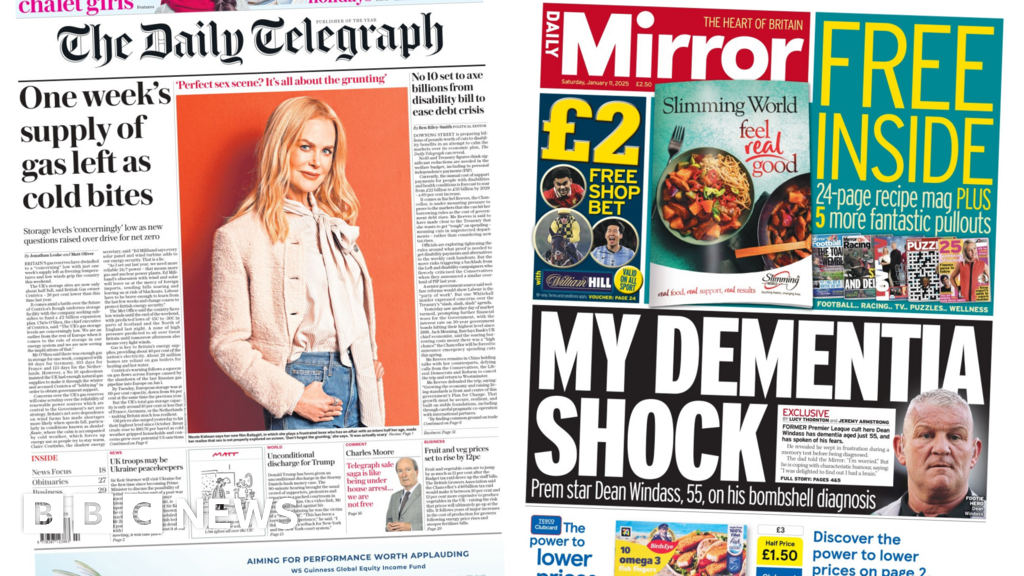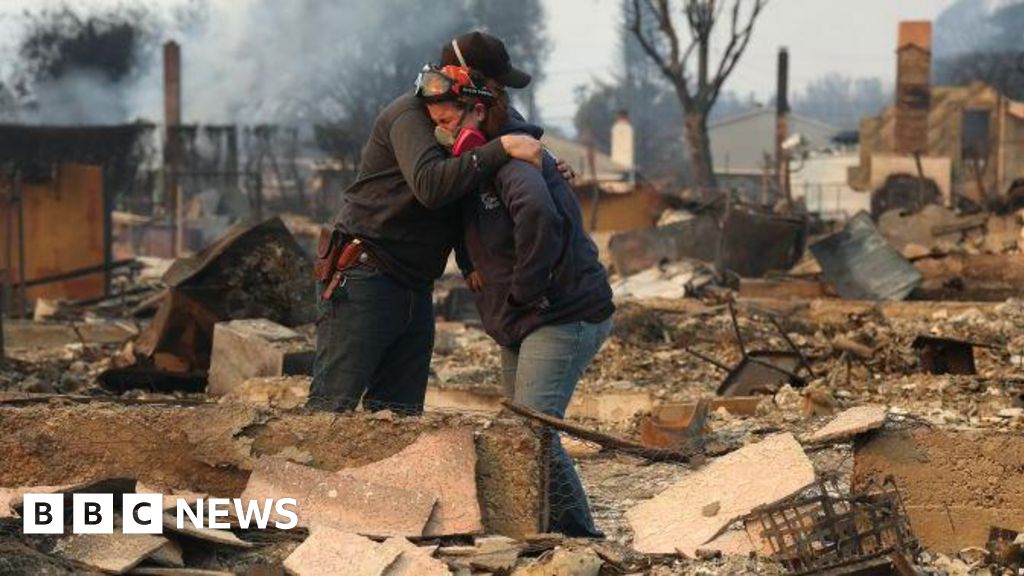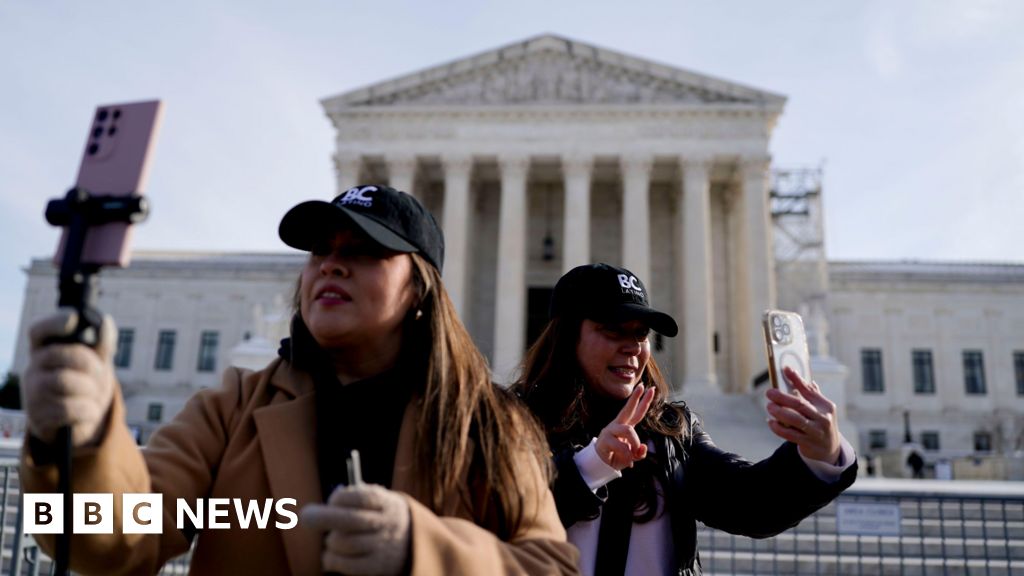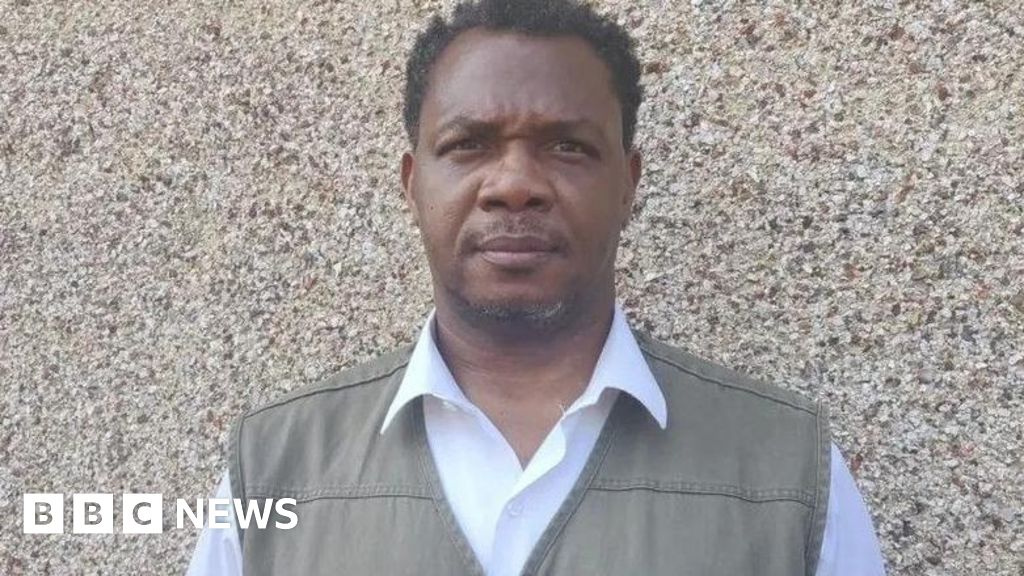22 minutes ago
By Niall McCracken, BBC News NI Mid Ulster Reporter

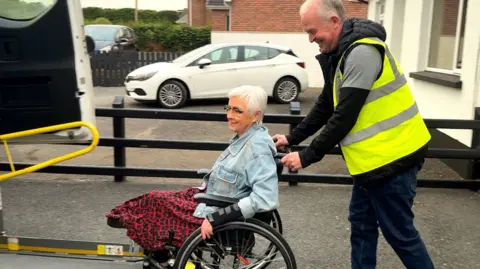 BBC
BBC
Patricia Davis uses community transport vehicles to get to healthcare appointments
Health trusts in Northern Ireland have spent more than £40m on taxis for patients since 2019.
Almost £7m of the spend related to taxis being sent in place of ambulances.
The ambulance service said the “significant cost” was due to the reduction of its car driver service, under which volunteers were given a mileage allowance to use their own vehicles to transport patients.
It said there had been a “significant reduction” in the availability of voluntary drivers since the pandemic.
The latest figures have prompted calls from a Stormont minister and transport groups for more cost-effective measures to be considered.
Questions have been raised as to whether not-for-profit organisations could be used for more journeys.
The figures were released in response to an assembly question by the Alliance Party's Kellie Armstrong.
The money to pay for the taxis is used by individual health trusts but comes from the Department of Health's budget.
During a recent minister question time, Infrastructure Minister John O'Dowd said:
“When I look at the costs that some of my executive colleagues face in providing transport, particularly for patients in the health service, I see that community transport could play a vital role in providing a cost-effective alternative," he said.
The Department of Health said it had a statutory duty to provide transport to eligible patients for things like getting a patient home after an operation.
Meanwhile, a group representing taxi drivers said it was important to get patients to appointments “quickly and efficiently”.

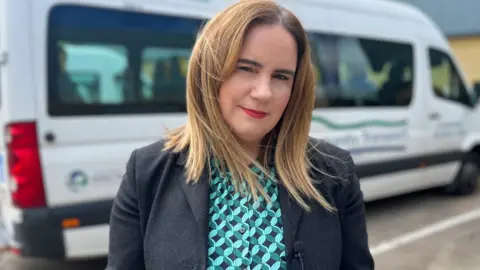
Noeleen Lynch, from the Community Transport Association, believes community solutions would be more cost-effective than paying for taxis
Community transport organisations already provide some transport to elderly and disabled passengers in rural parts of Northern Ireland, but this is not paid for through the health budget.
Rural community transport partnerships across Northern Ireland deliver a dial-a-lift service and receive £2.3m a year from the Department for Infrastructure.
They make about 200,000 journeys annually, transporting vulnerable passengers for things like shopping, but a key part of their service is for healthcare appointments.
But the service has recently been at risk of closure due to funding issues.
While it has now received funding for the next financial year, a charity which represents community transport providers has questioned why so much public money is being spent on taxis.
Noeleen Lynch, director of the Community Transport Association (CTA) in Northern Ireland, said: "While we acknowledge the gaps in public transport infrastructure and the occasional necessity of taxis, we must scrutinise whether allocating £40m to taxi services is the most cost-effective use of Department of Health funding," she said.
“Regrettably, community transport is excluded from the current tender process with the Health and Social Care Trusts. We believe community transport presents a solution to deliver accessible transport options in a cost-effective manner.”

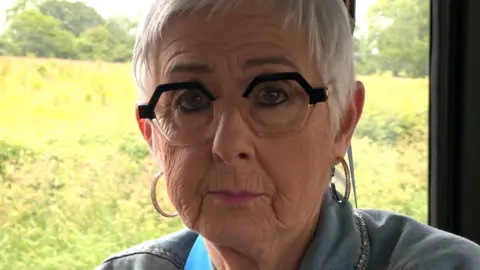
Patricia Davis worked as a nurse for more than 40 years
Patricia Davis lives in a rural part of County Tyrone on the outskirts of Dungannon.
She was a nurse for almost 40 years, but had to leave due to ill health.
After developing sores on her foot because of poor circulation, she had a bypass, but eventually complications meant she had to have one of her legs amputated.
She now uses a prosthetic leg and sometimes a wheelchair.
“I was a gym fanatic and always so independent and I loved driving, but I’ve lost all of that now," she said.
“I really do miss it, especially because I have lots of hospital appointments now that I need to attend.”
Patricia regularly uses her local community transport service to take her to her appointments.
“I honestly don’t know what I would do without it, it’s my lifeline.
“They take me to my local appointments, but also as far as Belfast when I need to go to the City Hospital.”
Commenting on the public taxi expenditure, she added: “I’m really surprised about how much is being spent.
“Obviously people need to get to their healthcare appointments, but I’ve never heard of it and I’ve never had the offer to get a taxi paid for me, so I’ve relied on community transport.”
'Non-emergency situations'
Each health trust has its own policies about who qualifies for the Healthcare Travel Cost Scheme.
Eligibility criteria may include a patient being in receipt of certain benefits or having received a referral for specialist care from a healthcare professional.
Commenting on the use of taxis instead of ambulances, the Northern Ireland Ambulance Service (NIAS) said this was for non-emergency situations.

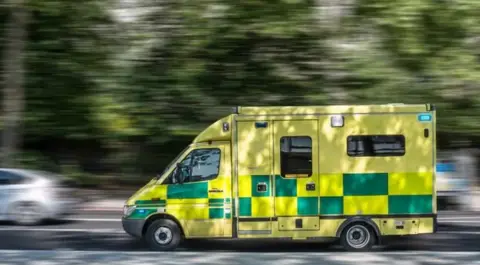
Almost £7m was spent on sending taxis for patients in place of an ambulance
A spokesperson added: “At NIAS, our primary objective is to ensure that patients receive timely, reliable, and safe transportation to their healthcare appointments. The substantial expenditure on taxi services reflects our commitment to meeting this need.
“However, we recognise the importance of exploring more cost-effective and sustainable solutions, especially in these challenging financial times.”
The Licensed Taxi Operators Association says its members carry out between 6,000 to 8,000 journeys a week for healthcare appointments.
The organisation's Northern Ireland spokesperson, Stephen Anton, said: “On first impression, the £40m over five years seems and is, a substantial figure.
“When considered on an annual basis, and accounting for a slightly higher per journey fare reflecting the extra time and care that many healthcare patients require, it represents good value when the number of journeys completed are calculated.”
 (1).png)
 6 months ago
16
6 months ago
16
